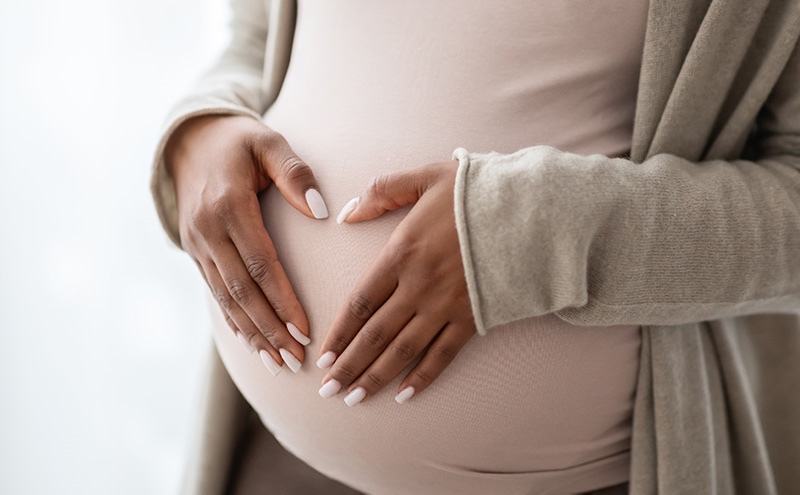Pregnancy is very often an exciting time for a woman and her family. However, some women might have concerns, worries, or even fears. There might be challenges during pregnancy that are hard to deal with, like not having the support you thought you would or constant morning sickness.
Women can struggle with other worries, too, like having the baby safely or how they will cope with their first (or another) child in the mix. These feelings are normal. However, they can present a significant problem when they get worse. In this blog, we’ll discuss how mental health affects pregnancy.
Does Mental Health Affect Pregnancy?
Yes! Mental health affects pregnancy in many ways, particularly if you have any history of mental health disorders. Some examples include the following:
- A history of mental illness
- When you stop taking medication for an existing mental health issue
- When you have a recent stressful event in addition to your pregnancy
- If you are unhappy about your pregnancy
- If you are dealing with difficult memories from your childhood or trauma
Studies indicate that sometimes, the hormonal changes brought about by pregnancy can increase your risk of pre-existing conditions like depression. It can also stir up upsetting memories from your own childhood that you may not have realized were there, resulting in additional strain.
Sometimes, women stop taking certain medications for pre-existing mental health conditions, whether on their own or because of advice due to pregnancy, but this means there’s a higher risk of increased episodes of poor mental health, especially if you’ve had a severe mental health illness like schizophrenia or several recent episodes for something like bipolar disorder.
Risks of Untreated Mental Health on Pregnancy
If left untreated, mental health conditions during pregnancy can not only negatively affect the mother but also the new baby and the family:
- Mothers are at a higher risk of not taking care of themselves
- Conditions like depression and anxiety increase the risk of shorter gestation, low birth weight, and preterm birth
- Some untreated mental health conditions can affect development in a child later on
- Untreated depression can interfere with proper bonding between a mother and her baby
- Stress from mental health disorders can increase the chances of high blood pressure or other health issues during pregnancy
How Does Mental Health Affect Pregnancy
There are two ways that mental health can affect pregnancy:
History of Mental Health Issues
The first is those people who have a history of mental health for whom changes related to pregnancy can increase things like anxiety about the pregnancy, or problems with weight and shape changes for those with a history of eating disorders.
If you’ve had a history of mental health issues, even if you are fine right now, it is in your best interest to get advice from a specialist throughout your pregnancy. This is especially true of anyone with a history of:
- Schizophrenia
- Bipolar disorder
- Schizoaffective disorder
- Severe depression
- Severe anxiety
- OCD
- Eating disorders like bulimia or anorexia
Pregnancy causes a shift in hormones, and at any time during your pregnancy, the symptoms of a previous mental health disorder can come back. Having regular appointments with your primary care physician or specialist can ensure you discuss your symptoms throughout your pregnancy and get help when needed.
Pregnancy Changes
The second effect of mental health on pregnancy is when symptoms of a mental health disorder are actually linked to the pregnancy. Lack of energy and poor sleep are very common in pregnant women but equally common in women with depression.
These pregnancy changes might lead to the development of mental health disorders not only during pregnancy but also after pregnancy, especially if you have a history yourself or a family history of certain conditions.
Getting Help While Pregnant or After
Whether you have a history of mental health issues or eating disorders, or you are experiencing symptoms for the first time during or after your pregnancy, it’s important that you find the right type of program to give you help.
At Casa Serena, we offer flexible outpatient rehab for women, run by women. Our organization is dedicated only to female clients so you can feel safe and comfortable during your pregnancy or early stages after pregnancy getting help from women who understand what you’re going through. Our program is designed to accommodate several schedules as well, so you are able to remain at home where you are most comfortable and come to our facility during the day for the treatment you need.
Overall, it’s just as important that you take care of your body during pregnancy as you do your mind. There are several ways that mental health can affect pregnancy. If you are experiencing mental health issues during pregnancy or you have a history of mental health issues, it’s important that you reach out for the right type of outpatient treatment based on your condition, which may include therapy and medication.
Reach out to us today for help with eating disorders, other mental health programs for women, or substance abuse.



